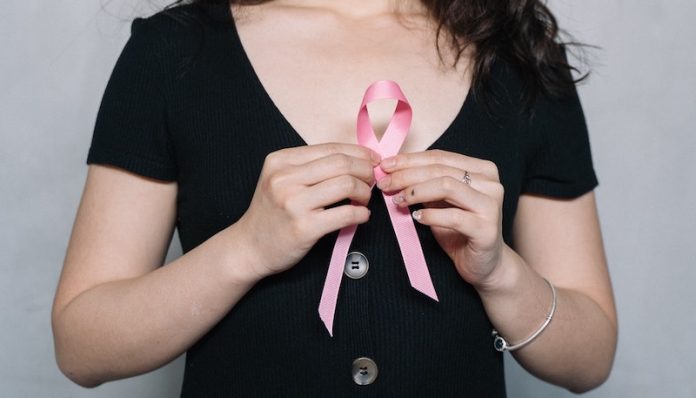
Scientists from the University of Michigan found a new approach to treating an aggressive form of breast cancer.
They found that targeting the immune microenvironment in lymph nodes and tumors simultaneously led to long-term tumor remission metastatic triple negative breast cancer.
Further, using nanoparticles to deliver these immune-altering drugs increases treatment efficacy.
The research is published in Science Translational Medicine and was conducted by Duxin Sun et al.
Immunotherapy combined with chemotherapy has been long approved as standard treatment option for triple negative breast cancer but only shows a limited response in patients.
Many believe that the tumor immunosuppressive microenvironment is one of the main contributing factors for the poor responses in those with triple negative breast cancer.
Previously developed immunomodulators work well in animal models, but fail in clinical trials.
In the study, the team looked for strategies to modulate both the tumor and lymph node microenvironments to improve treatment response.
Based on 15 years of experience, they knew that one type of nanomedicine could be used to deliver immune modulators to these microenvironments to alter cancer cells.
The team treated breast cancer mice models with an albumin nanoparticle, a type of nanomedicine, called Nano-PI, in combination with immunotherapies, to remodel the microenvironment in both lymph nodes and tumors.
They achieved long-term tumor remission and eliminated lung metastases.
The team achieved almost 200 days without the tumor growing back, compared to most mice models where the tumor returns in 90 days.
The team used new design criteria for nanomedicine that was drug-specific, meaning it must be used to overcome a specific problem in a specific setting.
To further test this new philosophy, and to continue to explore the efficacy of targeting lymph nodes and tumors simultaneously, the researchers hope these findings can move toward a clinical trial.
If you care about breast cancer, please read studies about a major cause of deadly breast cancer, and common blood pressure drugs may increase death risk in breast cancer.
For more information about cancer, please see recent studies that new cancer treatment could reawaken the immune system, and results showing vitamin D can cut cancer death risk.
Copyright © 2022 Knowridge Science Report. All rights reserved.



